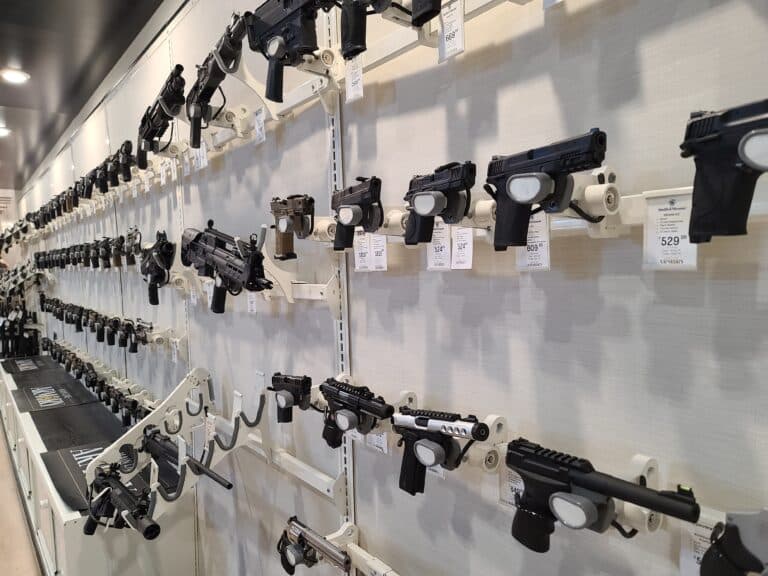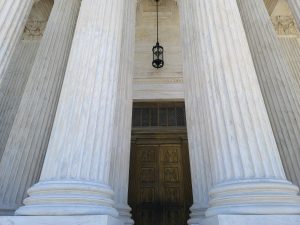Gun sales have effectively been halted in Hawaii. That’s a pretty straightforward Second Amendment violation, but successfully fighting it in court will be complicated.
There are several reasons for that. Most of them are practical rather than legal.
The most prominent has to do with the nature of the ban. It’s not a straightforward sales ban. Instead, it stems from how Hawaiian officials have seemingly bungled implementing the state’s new training requirements. Law enforcement officials need to certify instructors under the state’s new gun-carry law once it goes into effect in a few days, but none of them seem to have created those new certification processes yet. That means, for now, nobody can obtain the training that’s required to buy a gun or get a gun-carry permit because nobody is yet certified to teach it.
But this issue could be worked out within the next few weeks. That’s because, at least according to the activists who’ve brought the issue to public attention, the effective shutdown of sales and carry permitting wasn’t necessarily intentional. It was the result of negligence or incompetence.
“I guess I shouldn’t be surprised. But I am a little bit surprised that here we are with January 1 coming up in a few days, and they didn’t do it despite having six months,” Alan Beck, a gun-rights lawyer who has challenged a number of Hawaii restrictions over the years, told The Reload.
That means it can probably be fixed relatively quickly if officials choose to do so. And that’s what Honolulu Deputy Corporation Counsel Daniel M. Gluck told Beck they’re trying to do.
“Because instructor verification is a prerequisite to training certification, which is in turn a prerequisite to receiving a permit to acquire, we wanted to start the verification process as early as possible so we don’t delay any permit applications,” Gluck said in an email to Beck reviewed by The Reload.
The Honolulu Police Department (HPD) has a public hearing scheduled for January 9th, 2024, to decide on the new certification standard. Beck said it would take at least ten days after that point for the certifications to be finalized. But Gluck insisted Honolulu would be able to smoothly transition to the new certification process that would allow the city to comply with the 40-day processing limit in the new law.
Still, given the Hawaii Firearms Coalition claims HPD stopped issuing new permits on December 18th, gun sales there will have been cut off for nearly two months under the most optimistic outcome. And, of course, a right delayed is a right denied. So, the fact the issue may be resolved in the next few weeks isn’t a good legal reason a case against it wouldn’t succeed.
But it is a good practical reason why a legal effort may not materialize. The length of the delays will impact the likelihood of a lawsuit being filed. The longer the delays last, the more likely somebody files suit.
Mootness is the main impediment here. The faster the issue gets resolved, the less likely a plaintiff can get an order against Hawaii, and the more likely the case will simply be dismissed. After all, the officials can eliminate the harm caused to the plaintiffs by simply issuing them the permits they seek.
In practice, that means anyone who filed a case would probably be out of the money they used to do so.
Clearing that practical hurdle is more challenging than it appears at first glance, too. Since the sales shutdown seems to be primarily the effect of local law enforcement’s failure to properly prepare for the new state law rather than the law itself, a legal challenge would probably have to be brought against multiple officials across the state. Plus, Hawaii is small and has relatively little demand for guns and relatively little gun-rights activism.
In fact, Beck is primarily responsible for the numerous legal victories against the state’s gun restrictions. He isn’t directly backed by any major national gun-rights group and is already suing the state over the underlying law’s gun-carry restrictions, which are intentional and will be ripe for challenge for a much longer period of time. Beck is considering a suit over the sales shutdown too, but if he doesn’t file one, there aren’t many other lawyers likely to take up the cause.
Then there’s the conservative nature of the federal judiciary to contend with. Not in the ideological sense but in the legal sense. Judges are much less likely to intervene in the conduct of elected officials if the issue is likely to be resolved relatively soon without them getting involved–even if the legal standard suggests they ought to. Hawaii also happens to sit in the Ninth Circuit, where plaintiffs are unlikely to find a judge eager to process a Second Amendment claim quickly. A potential plaintiff is more likely to run into a judge inclined to hope the situation works itself out before they’re forced to issue any kind of ruling.
None of that means a case isn’t coming or couldn’t succeed. There are creative ways to extend the viability of a case like this beyond when the permitting gets fixed, such as claiming a nominal amount of monetary damages. And, more realistically, the gun sales shutdown may extend for months rather than weeks.
Gluck’s assurances that Honolulu would be able to start issuing purchase permits and carry licenses within 40 days seem optimistic. Even if the city finalizes its process by January 19th, it still has to give the certifications to instructions, and those instructors would then have to teach classes to the people seeking permits. Those students would then have to turn in their proof of training for processing by HPD. The city would have to perform each step very quickly to meet that 40-day deadline.
Even if Honolulu does, other jurisdictions are further behind the curve. The counties of Hawai’i and Kauai haven’t even scheduled a hearing yet, according to Beck. The shutdowns there could stretch out longer and be more susceptible to court challenges.
Still, getting a court to undo what is effectively a total ban on gun sales in an American state is more difficult than people might expect.







Only Members can view comments. Become a member today to join the conversation.